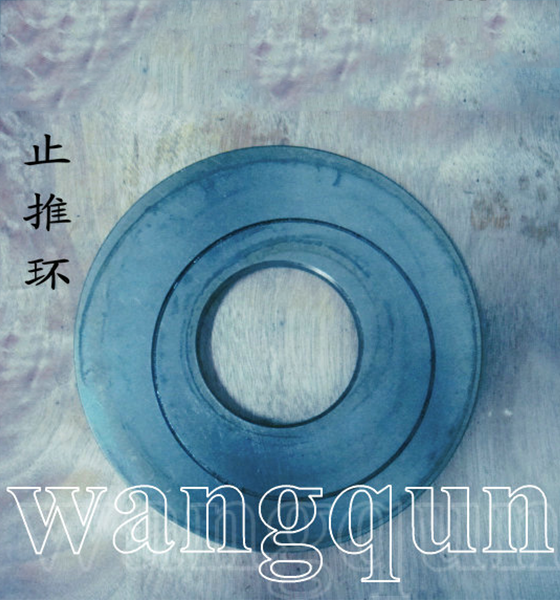
The Benefits of a Servo-Driven Rotary Tablet Press
Introduction
The pharmaceutical and nutraceutical industries rely heavily on tablet compression technology to produce high-quality solid dosage forms. Among the various types of tablet presses available, the servo-driven rotary tablet press has emerged as a superior choice due to its precision, efficiency, and flexibility. Unlike traditional mechanical presses, servo-driven presses utilize advanced servo motor technology to control compression forces, turret rotation, and other critical parameters with exceptional accuracy.
This article explores the key benefits of servo-driven rotary tablet presses, including improved process control, energy efficiency, reduced maintenance, enhanced flexibility, and superior tablet quality. Understanding these advantages can help manufacturers make informed decisions when selecting tablet compression equipment.
1. Enhanced Precision and Process Control
One of the most significant advantages of a servo-driven rotary tablet press is its ability to deliver precise control over the compression process. Traditional mechanical presses rely on cams and flywheels, which can introduce variability in tablet weight, hardness, and thickness. In contrast, servo-driven presses use programmable servo motors to regulate:
- Compression Force – Servo motors adjust the compression force in real-time, ensuring consistent tablet hardness and minimizing weight variations.
- Turret Speed – The rotation speed of the turret can be precisely controlled, allowing for smooth acceleration and deceleration, which reduces stress on the tooling.
- Dwell Time – The duration of compression can be optimized to improve tablet integrity, especially for challenging formulations.
This level of control enhances batch-to-batch consistency and reduces the risk of defects such as capping, sticking, or chipping.
2. Energy Efficiency
Servo-driven presses are inherently more energy-efficient than traditional mechanical presses. Conventional presses continuously run the main motor, even during idle periods, leading to unnecessary power consumption. In contrast, servo-driven presses:
- Consume Power Only When Needed – The servo motors activate only during compression, significantly reducing energy usage.
- Regenerative Braking – Some servo systems recover energy during deceleration and feed it back into the power supply, further improving efficiency.
- Reduced Heat Generation – Since servo motors operate only when required, they generate less heat, reducing the need for additional cooling systems.
These energy-saving features translate into lower operational costs and a reduced environmental footprint.
3. Reduced Maintenance and Longer Tooling Life
Mechanical presses rely on complex gear systems, cams, and clutches that are subject to wear and tear over time. Servo-driven presses eliminate many of these components, leading to:
- Fewer Moving Parts – Without cams and flywheels, there is less mechanical stress and fewer components that require lubrication or replacement.
- Reduced Vibration – The smooth operation of servo motors minimizes vibration, which can extend the lifespan of punches and dies.
- Lower Downtime – With fewer mechanical parts prone to failure, maintenance intervals are longer, and unplanned stoppages are minimized.
The reduced wear on tooling also means lower replacement costs and improved overall equipment effectiveness (OEE).
4. Flexibility in Tablet Production
Servo-driven rotary tablet presses offer unparalleled flexibility, making them ideal for manufacturers producing multiple tablet types or frequently changing formulations. Key advantages include:
- Quick Changeover – Adjustments to compression force, speed, and dwell time can be made via software, eliminating the need for mechanical modifications.
- Multi-Layer and Specialty Tablets – Servo-driven presses can easily accommodate multi-layer tablets, bi-layer tablets, or tablets with complex geometries.
- Small Batch Production – The ability to fine-tune parameters makes servo-driven presses suitable for R&D, clinical batches, and low-volume production.
This adaptability allows manufacturers to respond quickly to market demands without significant retooling or downtime.
5. Improved Tablet Quality and Yield
The precision of servo-driven presses directly translates into higher tablet quality and improved yield. Benefits include:
- Consistent Weight and Hardness – Real-time monitoring and adjustments ensure uniform tablet properties, reducing rejection rates.
- Reduced Defects – Controlled compression minimizes common issues like capping, lamination, and sticking.
- Better Content Uniformity – Accurate fill control ensures that each tablet contains the correct amount of active pharmaceutical ingredient (API).
Higher yields mean less material waste and greater cost efficiency in production.
6. Advanced Data Monitoring and Integration
Modern servo-driven presses are equipped with sophisticated control systems that provide:
- Real-Time Process Monitoring – Operators can track compression force, tablet weight, and other critical parameters in real-time.
- Data Logging and Traceability – Production data can be stored for compliance with regulatory requirements (e.g., FDA 21 CFR Part 11).
- Integration with Industry 4.0 Systems – Servo-driven presses can be connected to Manufacturing Execution Systems (MES) for seamless data exchange and process optimization.
These capabilities support quality assurance, process validation, and continuous improvement initiatives.
7. Quieter and Safer Operation
Servo-driven presses operate more quietly than mechanical presses, contributing to a better working environment. Additionally, the elimination of heavy flywheels and mechanical linkages reduces the risk of accidents, enhancing operator safety.
Conclusion
The servo-driven rotary tablet press represents a significant advancement in tablet compression technology. Its benefits—ranging from superior precision and energy efficiency to reduced maintenance and enhanced flexibility—make it an ideal choice for pharmaceutical, nutraceutical, and contract manufacturing operations.
By investing in servo-driven technology, manufacturers can achieve higher productivity, better tablet quality, and lower operational costs, positioning themselves for long-term success in a competitive industry. As tablet formulations become more complex and regulatory requirements more stringent, the servo-driven rotary press stands out as a future-proof solution for modern tablet production.
حقوق الطبع والنشر © 2025 Changzhou Wangqun Pharmaceutical Machinery Co. ، Ltd. جميع الحقوق محفوظة.
خريطة الموقعيستخدم هذا الموقع ملفات تعريف الارتباط لضمان حصولك على أفضل تجربة على موقعنا.
تعليق
(0)